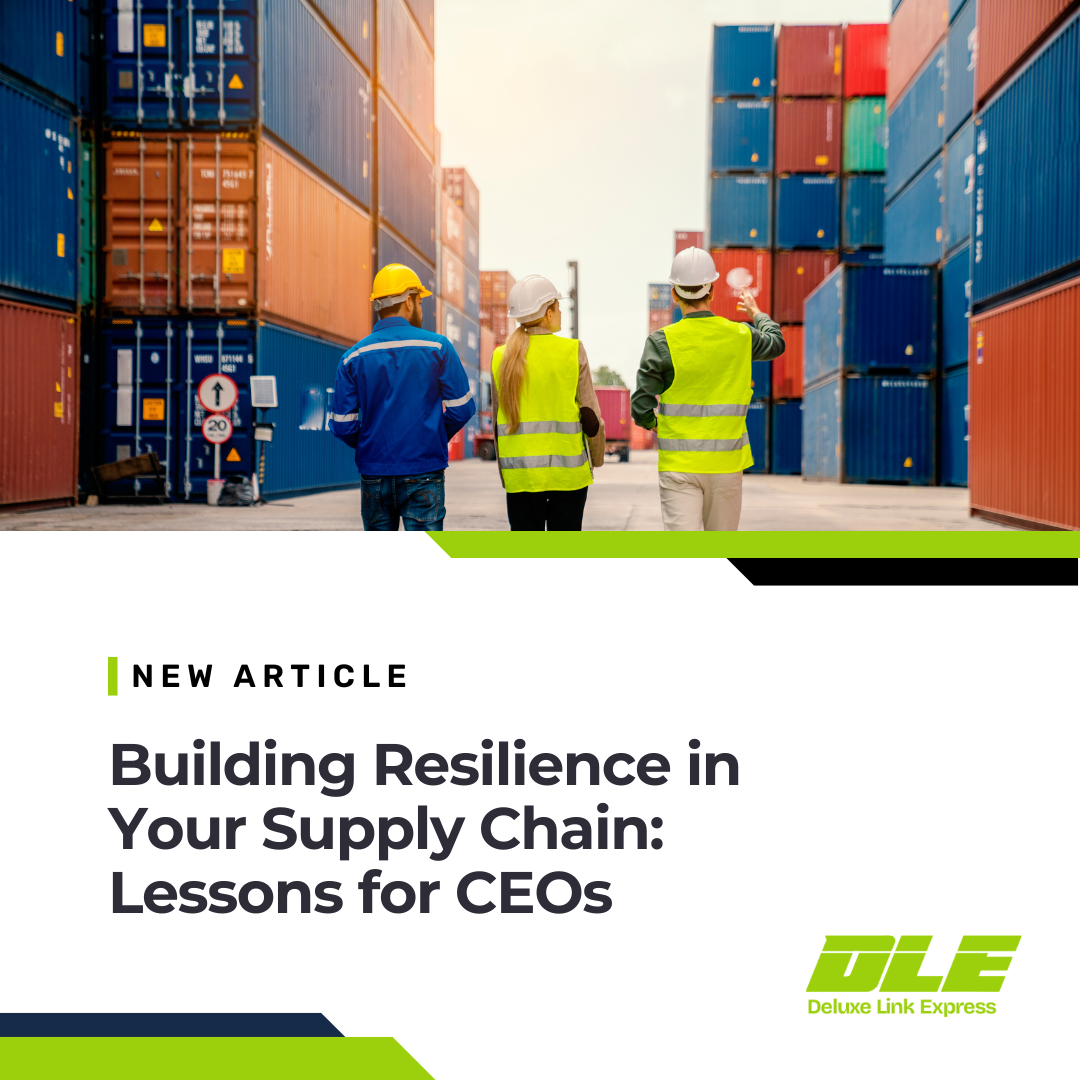Building Resilience in Your Supply Chain: Lessons for CEOs
Recent global events have shown us how easily the flow of goods can break down. Whether it's necessities becoming scarce or manufacturing materials running low, supply problems can affect any business. Here's how to protect your business and keep your products moving smoothly.
Find Your Weak Spots
Think about making a meal. If you're missing a key ingredient, you can't cook—no matter how many other ingredients you have. Your business works the same way. Look at everything you need to make and deliver your products. Which missing items would stop everything? Those are the areas you need to protect first.
Don't Rely on Just One Supplier
Imagine having only one source of water for your home. What would you do if that source dried up? Your business faces similar risks with single suppliers. Find several reliable suppliers in different regions. It might cost more, but it protects your business from unexpected problems.
Use Simple Technology to Track Everything
Modern tools can help you watch your supplies and spot problems early. It's like having an early warning system - but for your business. Basic computer systems can show you where your materials are and help you notice issues before they become serious.
Build Strong Supplier Relationships
Good suppliers are like trusted partners - you need to build trust and support each other. Keep in regular contact. Be fair in your dealings. When difficulties arise, suppliers remember who treated them well. Strong relationships often mean the difference between getting your supplies or facing delays.
Keep Smart Reserves
Having no backup supplies is like having no food stored at home - it works until something goes wrong. But you don't need massive warehouses full of stock either. Keep extra supplies of your most important items. Think carefully about what your business absolutely needs to keep running.
Have a Backup Plan
What would you do if your main supplier couldn't deliver? Or if transport routes were blocked? Don't wait for problems - plan for them now. It's like having a backup power source - you hope you won't need it, but you're prepared if you do.
Consider Local Options
While international suppliers might offer better prices, local suppliers can be valuable partners. They can deliver quickly when needed, and you're less likely to face international shipping delays. Try to find some local suppliers for at least part of your needs.
Train Your Team Well
Make sure everyone in your company knows what to do when problems occur. It's like everyone in a household knowing what to do during an emergency. Clear instructions and regular practice help people solve problems quickly.
Stay Flexible and Learn
Markets keep changing, and new challenges appear regularly. Stay informed about what's happening in your industry and around the world. Be ready to change your approach when needed.
The Big Picture
Building a stronger supply chain takes effort and some investment. But when problems arise - and they will - you'll be glad you prepared. The most successful businesses aren't just the ones that work well in good times. They're the ones that can keep going when things get difficult.
Remember, you can't stop every problem, but you can be ready for them. Think of it like preparing for different weather conditions - you need to be ready for both sun and rain. In today's connected world, being prepared isn't just wise - it's essential for survival.
Simple Steps to Start
-
Make a list of everything you need to run your business
-
Find out where each item comes from
-
Look for backup suppliers for your most important items
-
Start building relationships with local suppliers
-
Keep some extra stock of critical supplies
-
Write down what to do if supplies are delayed
-
Train your team on handling supply problems
-
Review and update your plans regularly
The key is to start small but start now. Even small changes can make your business stronger and better prepared for unexpected problems.
Sources:
https://ware2go.co/articles/supply-chain-resilience/
https://www.gartner.com/smarterwithgartner/6-strategies-for-a-more-resilient-supply-chain
News from Our Blog

How do you create compelling presentations that wow your colleagues and impress your managers?

Olivia Ryne
20 Jan 2024

How do you create compelling presentations that wow your colleagues and impress your managers?

Olivia Ryne
20 Jan 2024

How do you create compelling presentations that wow your colleagues and impress your managers?

Olivia Ryne
20 Jan 2024


